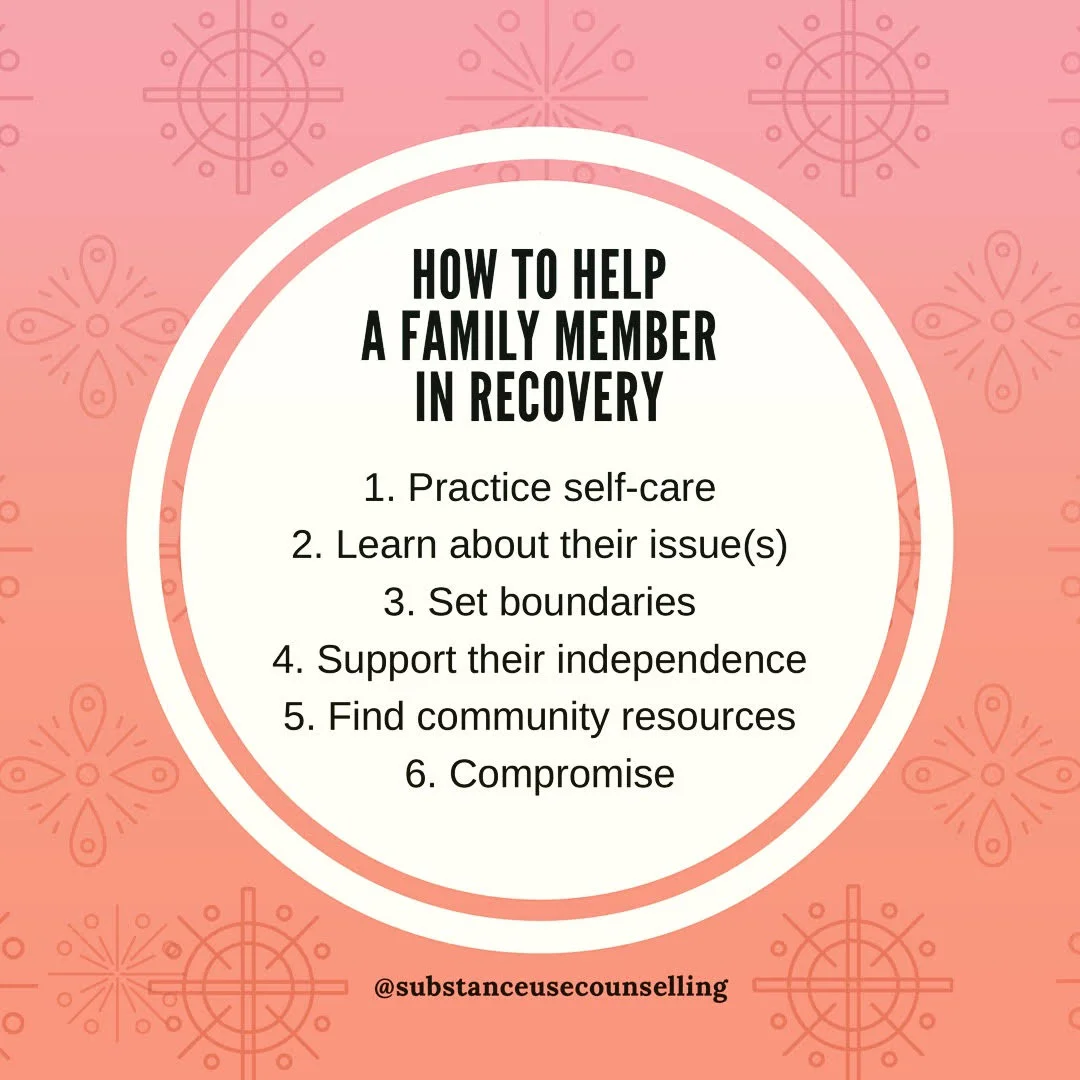What to do when one of your family members, a partner or close friend is struggling with an addiction or eating disorder?
You might be surprised to hear that about one third of my clients are not personally in recovery, but coming to see me because they want to learn more about, for example, how growing up with a person who drank problematically impacts them every day as an adult.
Or why it is so hard to see a sibling smoke too much weed.
Or why their sister's eating disorder just won't go away.
I touched briefly on this topic in one of my last emails to you, The Role of Siblings.
What I didn't mention in that email is how important family support is in recovery. It is very, very important.
In fact, the importance of family support in recovery cannot be stressed enough.
Treatment outcomes are much better when even just one family member other than the person struggling agrees to seeing a counsellor, too.
They could see a different counsellor, or the same one, and could come to sessions together or separately - any involvement has proven to be more effective than no involvement.
And the more family members participate, the better!
Ok, so aside from joining the family member in recovery in seeing a counsellor, what can we do when a loved one is struggling?
Try the following six steps:
- Before all else, make self-care a priority.
- Learn about the substances and mental health problems your loved one struggles with.
- Don't let them abuse or hurt you or put you in danger. Ever. (If this is difficult for you, consider attending my boundaries workshop on November 14th in Toronto.)
- Help your affected family member become as independent as possiblein everyday life.
- Guide them towards appropriate community resources and treatment options and help them make use of those as best as you can - for example by becoming an accountability partner.
- When disagreement arises about which next step to take, work towards a compromise and find a way forward that all family members can agree with - including the member who struggles.
Let me know if you have any questions about these steps, I would be happy to answer them.
And if you have a friend who could find this information helpful, please feel free to forward it to them, too.

